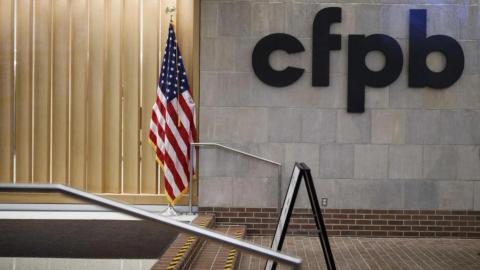
Similar Posts

Consumer Coalition Urges FCA to Halt Controversial Email Deletion Plans
In an open letter, stakeholders express strong concerns about the FCA’s upcoming email deletion policy, effective April 1. They argue it threatens accountability, impacting Freedom of Information requests, external reviews, and legal proceedings. Critics dispute the FCA’s claim that the policy won’t reduce transparency, highlighting risks of losing important communications needed for inquiries and litigation. Industry experts, including Aleksandra Maczynska and Anthony Stansfeld, stress that discarding emails could jeopardize evidence crucial for accountability. Andy Agathangelou calls for a pause to reassess the policy, warning it could damage the FCA’s regulatory credibility and reputation.

Future Banking Unleashed: EBAday 2025 and the Evolution of Banking Ecosystems
At EBAday, industry leaders emphasized the vital role of infrastructure in the payments sector, highlighting how innovation relies on a robust foundation. Key speaker Ehrmann compared the need for continual infrastructure improvement in payments to the care of great masterpieces. Discussions included collaboration among financial institutions, proactive regulatory engagement, and the impact of geopolitical risks. Notable experts noted the fintech sector’s growth, particularly in instant payments. Challenges such as regulatory complexities, inflation, and cybersecurity were also addressed. The importance of maintaining global interoperability was stressed, along with the potential of blockchain technology in optimizing payments.

FDIC Confirms Banks Can Engage in Crypto Activities Without Prior Approval
The Federal Deposit Insurance Corporation (FDIC) has announced a shift in its regulatory stance, allowing banks to engage in crypto-related activities, provided they manage associated risks effectively. This updated policy replaces prior strict regulations requiring banks to obtain clearance for such activities. FDIC Chairman Travis Hill emphasized this change as a move towards a more flexible approach to cryptocurrencies and blockchain. The decision reflects a broader trend of loosening restrictions on digital assets within the financial sector, seen in recent actions by the Office of the Comptroller of the Currency and the Commodity Futures Trading Commission, signaling increased acceptance of digital currencies.

CFPB Imposes $2.5 Million Fine on Wise: What You Need to Know
Wise, a London-based financial technology company, faces scrutiny from the Consumer Financial Protection Bureau (CFPB) for misleading advertising practices related to fees and exchange rates in the U.S. The CFPB accused Wise of promoting inaccurate benefits, such as lower ATM withdrawal fees and free withdrawals, which were not applicable to U.S. customers. Additionally, Wise failed to disclose essential costs associated with its services, leading to consumer confusion. As a result, the CFPB has ordered Wise to pay $450,000 to affected customers and $2.025 million to its victims relief fund, highlighting the importance of transparency in financial services.

US Banks Reduce Information Sharing with OCC Following Email Hack Incident
A recent cybersecurity breach has alarmed the financial sector after hackers accessed over 150,000 emails from the Office of the Comptroller of the Currency (OCC), including sensitive information about federally regulated institutions. This incident raises concerns about potential cyberattacks and extortion risks. Although the OCC has not disclosed specific details of the compromised materials, financial institutions often discuss critical matters like financial health and cybersecurity with the regulator. As a result, banks are limiting information sharing with the OCC to enhance security. The financial sector must prioritize robust cybersecurity measures to prevent future breaches.

Fortify Your Fraud Defense: Expert Strategies Revealed at NextGen Nordics
Fraud prevention is increasingly crucial in the Nordic financial sector, which is transitioning from reactive to proactive measures against real-time fraud threats. Advanced technologies such as AI analytics and behavioral biometrics are being integrated to enhance fraud risk management. A key development is the Verification of Payee (VoP) system, adopted by countries like Sweden and Finland, which helps reduce Authorised Push Payment (APP) fraud. Nordic nations are observing the UK’s strategies for combating APP fraud, advocating for collaborative efforts among financial institutions. The NextGen Nordics 2025 event will discuss these innovations and set new standards for secure digital payments.
